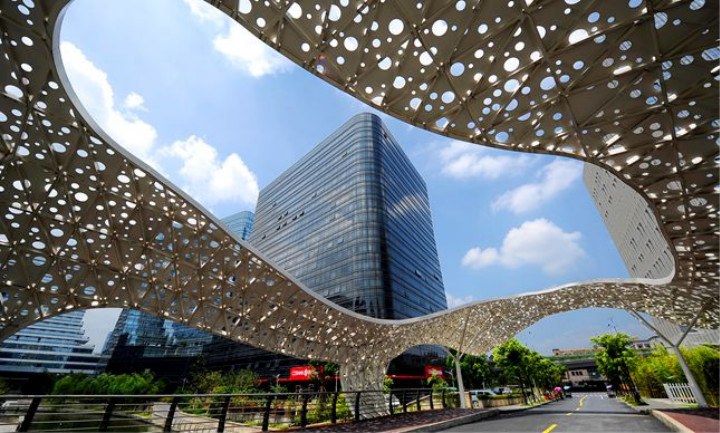
Entrepreneurs gather at a reception desk in the Hangzhou Cross-Border E-Commerce Comprehensive Pilot Zone. (Photo/zj.zjol.com.cn
Hangzhou has made significant progress in developing cross-border e-commerce in recent years by building a comprehensive pilot zone.
During this year's Double 11 shopping spree, which lasted from Nov 1 to 11, Tmall, a shopping platform run by Alibaba, recorded a year-on-year increase of 47.3 percent in imported commodity sales.
Statistics show that around 180 overseas brands exceeded 10 million yuan ($1.52 million) in transaction volume during the shopping event. Chinese consumers can now buy a variety of imported goods through the tap of a finger.
In March 2015, the State Council approved the establishment of the Hangzhou Cross-Border E-Commerce Comprehensive Pilot Zone. In 2016, the national monitoring center for cross-border e-commerce commodity quality and safety was founded in Hangzhou.

The Cross-Border Trading Town is located in the central business district in Xiacheng District, Hangzhou, capital of East China's Zhejiang province.
(Photo provided to ehangzhou.gov.cn)
In 2018, Hangzhou developed the nation's first cross-border e-commerce credit system. The city has been a pioneer in promoting the development of cross-border e-commerce.
From January to August, Hangzhou recorded 68.46 billion yuan in cross-border e-commerce imports and exports, a year-on-year increase of 19.61 percent. The city has more than 26,000 internet shops dedicated to cross-border e-commerce.
The Electronic World Trade Platform, or eWTP, which is an Alibaba-led initiative aiming to help small and medium-sized enterprises participate in the global market, has been consistently improving.
(Edited by Ye Ke)